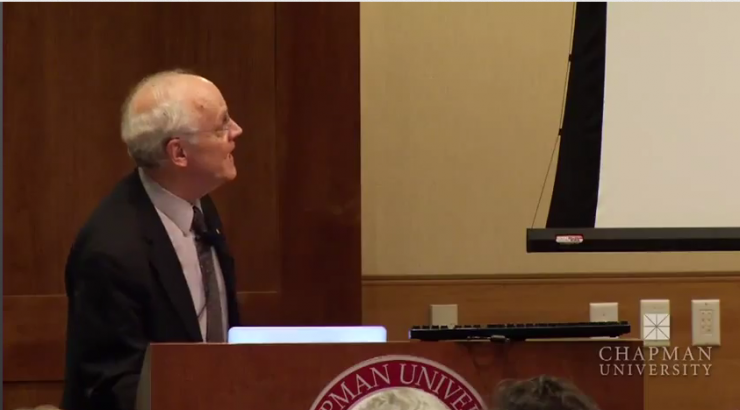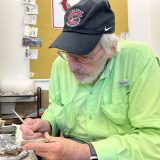
Nobel Laureate Dr. David Gross on Fundamental Physics
March 24, 2012
Chapman University welcomes Nobel Laureate Dr. David Gross as he explains the theory that unifies all the forces of nature and helps scientists understand the origin and history of the universe. He also discusses what it might mean to have a final theory of fundamental physics and whether science is capable of discovering it.
Gross has been a central figure in the theoretical developments surrounding the emergence of quantum chromodynamics (QCD) as the accepted theory of the strong (nuclear) force. His discovery, with his student Frank Wilczek, of asymptotic freedom—the primary feature of non-Abelian gauge theories—led Gross and Wilczek to the formulation of QCD. Asymptotic freedom is a phenomenon where the nuclear force weakens at short distances, which explains why experiments at very high energy can be understood as if nuclear particles are made of non-interacting quarks. The flip side of asymptotic freedom is that the force between quarks grows stronger as one tries to separate them. This is the reason why the nucleus of an atom can never be broken into its quark constituents. Filmed by Panther Productions.
